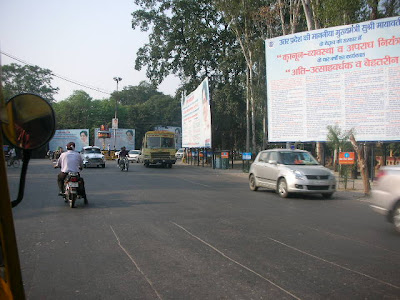
The first friend I had in life was my mamu, my mother's brother. More than an uncle, he was a buddy. Every evening, I would wait for him to come home from work. As soon as I heard the familiar phat-phat of his scooter, I would race out of my home and accompany him two flights of stairs up to his. There, I would wait patiently till he had his bath and ate a snack that my grand-mom had prepared for him, and then we would hang out together. We would go for a spin on his scooter around the colony or drop in to his friend Kersi's place or just go to the circle down the road to pick up a lottery ticket.
He had all sorts of nicknames for me. When I would go to him crying because I had been scolded by my parents, he would call me Kashmira, a girl's name. When he needed some help to fix something at home, I would be Begaari, labour. But his favourite name for me was Saparchand, apple or figuratively, simpleton. I would retaliate and call him Keru, banana. But it never had the effect I desired on him.
He clicked pictures of me and my sister through our childhood, and then lovingly mounted them himself in an album. We still have that album and treasure the memories of our childhood. The picture above is from that, of him holding my little sister. (Unfortunately, it's not of the two of us together.)
The album was kept away, locked in his cupboard, and we had to demand to see it. We weren't allowed to turn the pages. He would turn them himself. The first picture was his. He would point to it and say "Behesti (the late) Dara Bomanshaw Desai."
He took me to my first movie. He took me to Chowpatty to go up Bombay's first escalator and see the public Diwali fireworks. To the Don Bosco church where we waited in a serpentine queue to get a glimpse of a newly installed statue of Mary.
When I was in kindergarten, he made me bunk school on a Saturday and took me to Udwada for a weekend. When I asked him what do I tell my teacher when she asks the reason for my absence, he told me to say, "Heart fail." I chickened out, however. When the teacher indeed asked me why I hadn't attended school on Saturday, I truthfully said I'd gone to Udwada.
When I was a little older, he was transferred to Goa on work. I would wait for his vacations to Bombay with great anticipation, first counting down the days and then the hours to his arrival. On Thursday, my mid-week school holiday, he would take me out on a whole-day outing. We would leave in the morning on his scooter to his office at Wellington Mews, then to the World Trade Centre to buy shirts, always from Stanrose. The rest of the day we would visit relatives, his masis and mamas and cousins. My sister would be very jealous of these outings; Mamu was her friend too, but never such a big one as mine.
He had a signature whistle. Every time he bounded down the stairs, down from his house to mine, he would whistle. That was our cue to run to the door and open it. My first attempts at whistling were to imitate that signature tune.
That wasn't the only thing about him I tried to imitate. My ambition then was to be an engineer like him, and I even ended up studying in the colleges he studied in - Ruia and VJTI - before realising that my ambitions were actually elsewhere.
There are a couple of things though about me which I think are completely his influence, on reflection. A morbid sense of humour. And the way I behave with the children of my friends - more like a friend than as an uncle.
When I was 12, he married. Something ended then. Things were never the same after. He had his own family, and I moved on to newer friends. We became uncle and nephew.
Last month, as I watched him battle unsuccesfully with pancreatitis in the ICU at Jaslok Hospital, these memories came rushing back. And with them, the realisation that he was actually the very first friend I had.

Love you, Mamu. And miss you.




